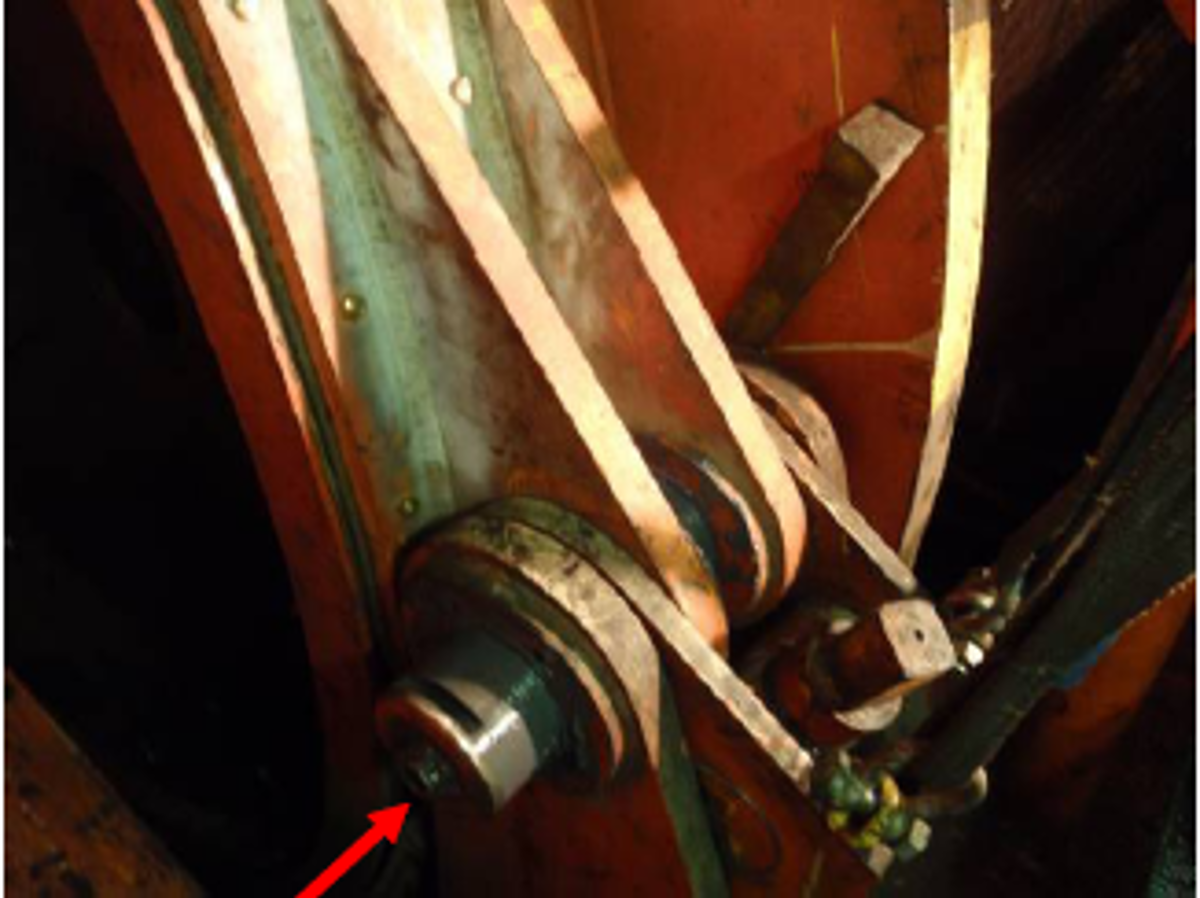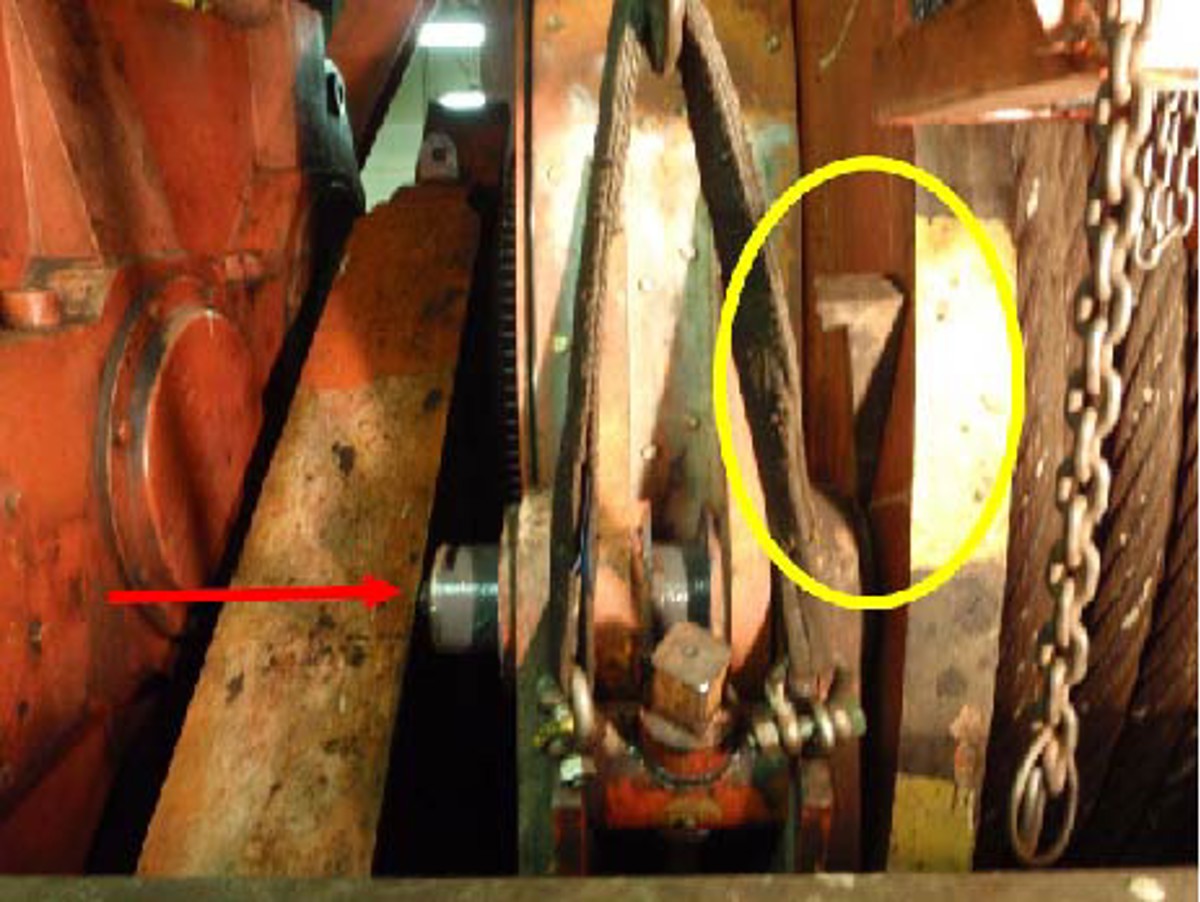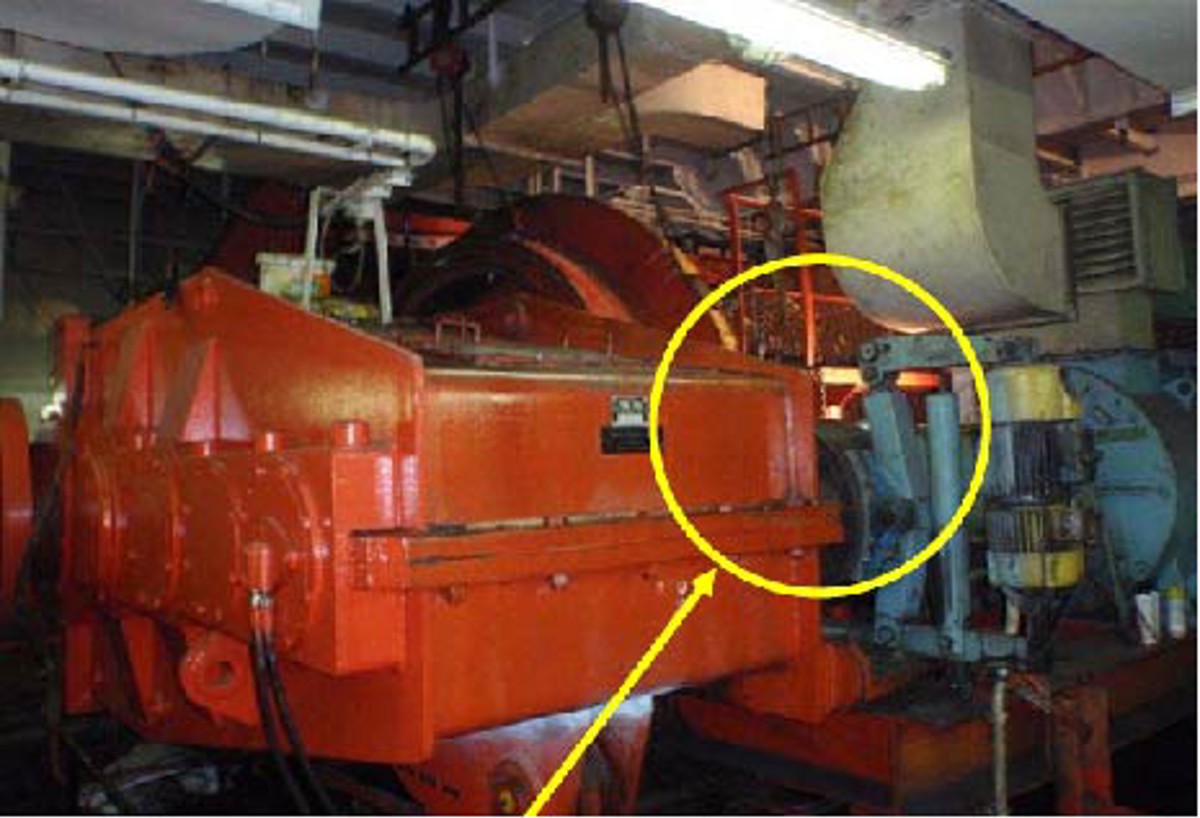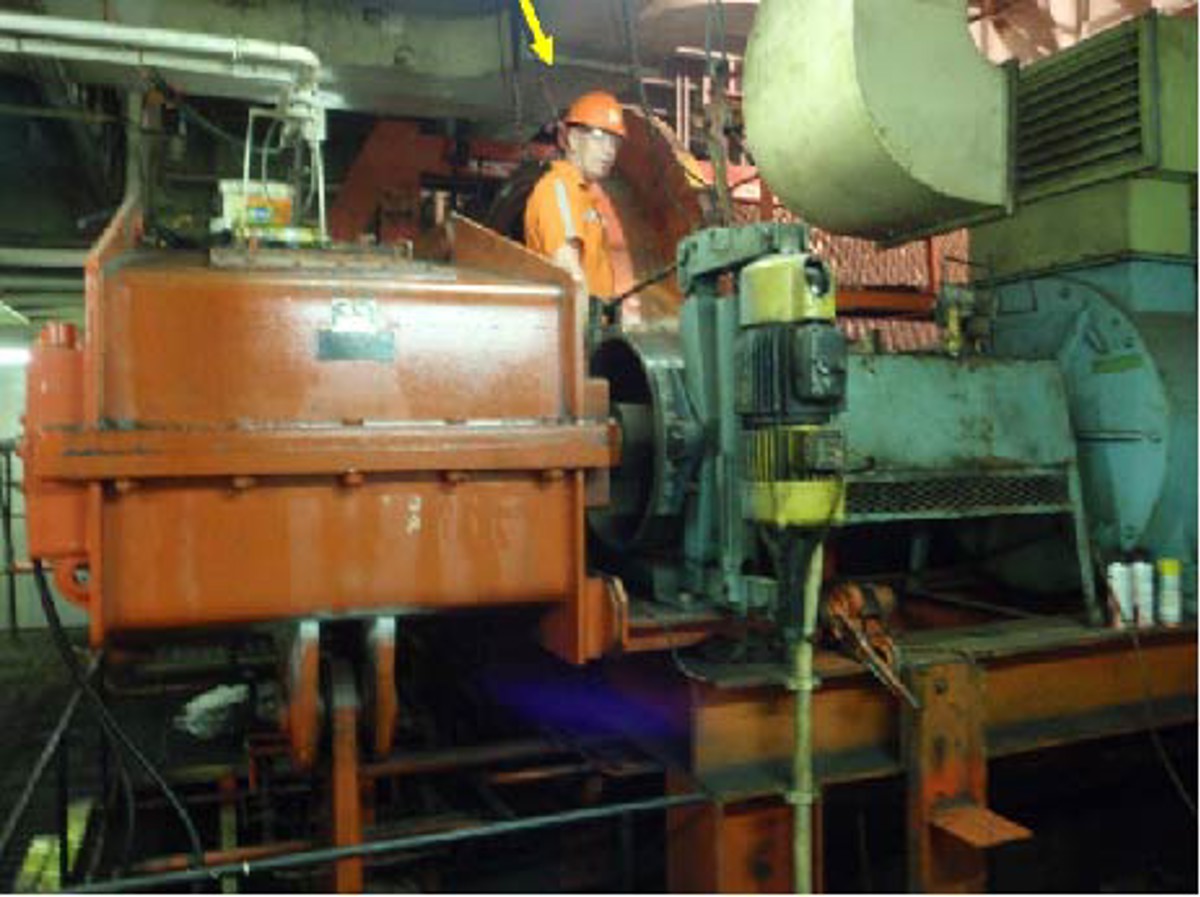Right hand hit by flying wedge
- Safety Flash
- Published on 15 December 2010
- Generated on 10 February 2026
- IMCA SF 08/10
- 2 minute read
Jump to:
A Member has reported an incident in which a member of the crew was injured when a steel wedge came loose and hit him on the right hand.
What happened?
The injured person was working in a winch room replacing the band brakes of a winch and had completed similar work on two other winches without any problems.
During the insertion of the brake belt pin with the help of a hydraulic jack, a steel wedge (weight 2.4 kilograms) was used to hold the foundation plate in the right position. Just before the pin was fully inserted in the pad eye/hinge-point, the wedge came loose with a lot of energy, and hit the injured person who was not wearing gloves, against his right hand. The injured person received the necessary medical treatment (four stitches) and was subsequently able to continue work under restricted conditions.
Our Member’s investigation revealed the following:
- There were two direct causes of the incident:
- the injured person’s position with respect to the job he was doing.
- the improper position of equipment used – the steel wedge.
- The root cause of the incident was considered to be inadequate experience/supervision (the injured person had less than three months’ experience on this vessel).
- A significant contributing factor was that the injured person was not using available PPE (gloves) and was performing the task in a tight/cramped working area.
Our Member took the following corrective actions:
- Time out for safety: work was stopped and incident discussed with personnel involved.
- Further emphasis was given to the importance of safe position with respect to unexpected flying objects.
- Further guidance and job instructions were given to relative newcomers.
- Shared lessons were discussed at shift briefings.
IMCA Safety Flashes summarise key safety matters and incidents, allowing lessons to be more easily learnt for the benefit of the entire offshore industry.
The effectiveness of the IMCA Safety Flash system depends on the industry sharing information and so avoiding repeat incidents. Incidents are classified according to IOGP's Life Saving Rules.
All information is anonymised or sanitised, as appropriate, and warnings for graphic content included where possible.
IMCA makes every effort to ensure both the accuracy and reliability of the information shared, but is not be liable for any guidance and/or recommendation and/or statement herein contained.
The information contained in this document does not fulfil or replace any individual's or Member's legal, regulatory or other duties or obligations in respect of their operations. Individuals and Members remain solely responsible for the safe, lawful and proper conduct of their operations.
Share your safety incidents with IMCA online. Sign-up to receive Safety Flashes straight to your email.



